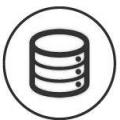This is a beginner tutorial for creating vector map illustrations in Adobe Illustrator. We’ll be demonstrating techniques for layering, line techniques, symbols, colors, legends, labels and overall design. The goal will be to learn to draw or recreate any map with your own look and feel.
Outline of process:






